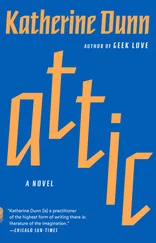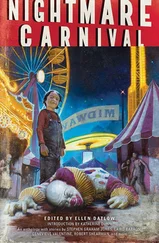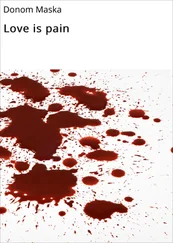The rope’s loop would hover over the chafing dish excitedly while the crowd subsided and C. B. Ford took up his bumpkin professorship. His timing was good and his chatter didn’t go over anybody’s head. He’d play the rope and talk and it was never long before the flies came. “There’s one now.… That’s the advantage of fresh bait,” he’d say. He had a screen cage full of flies — big bluebottles that were slow and easy to work with and easy for the crowd to see and hear. He had one of the boys behind the stage just crack the gate on that cage so the flies would come out in a slow drip. Five or six was all he wanted. And as soon as there were a couple of real flies buzzing that chafing dish, his rope would disappear and he’d get a long-haired girl up from the audience to giggle and assist him.
The first fly was always a big to-do. He’d jump all over the stage swiping wildly at the air, come within a frog hair of splatting his fist into the chafing dish a dozen times, get the girl volunteer to flap her arms to flush the little buzzers his way, and all the while talking his talk about the similarities and differences between Herefords and bluebottles until the audience was half-convinced that he was never going to catch the fly but was laughing anyway and jumpy as a drunk with a glass of milk waiting for him to smack a bare hand into that pile of warm dung.
Then, suddenly, he’d catch the fly and hold it, closed in his fist, up to the microphone so they could hear it buzz. Then he’d blow on his thumb knuckle and shout and shake his fist hard, “to make the fly dizzy,” and then snap his wrist as he flung the fly down hard onto the table. “Now he’s out for a second, but he’s just stunned and we’ve got to act quickly before he regains consciousness.”
Whirling on the long-haired girl and drawing small stork-shaped scissors, he would lift a strand of her hair, separate a lone thread, and snip it close to her skull before she had time to do more than squeak.
“We’ll tie a slipknot here at one end and have this big fella hobbled in a jiffy.”
The slipknot in the hair would slide over one of the stiffly splayed legs of the fly and tighten. With a quick flourish a little fluorescent paper sign was taped to the loose end of the hair. While the first fly was recovering its wits C. B. Ford would catch five more as easily as picking grapes and serve them the same way, assuring his blushing assistant that her hair was so thick and lustrous that she could spare six single threads for the taming of half a dozen wild beasts.
Inside three minutes a flock of confused flies was bobbling drunkenly through the air above the audience, trailing the tiny winking streamers that read “EAT AT JOE’S” and “HOME COOKING.”
The crowd would flush out through the flaps in a good humor. Inevitably a group of young men would take it upon themselves to swat the burdened flies out of the air or smash them as they sagged down to rest. Also inevitable was the child who was indignant at having the flies killed and did his best to catch one alive to protect it, to take it home in a popcorn box and revere it for having experienced something altogether extraordinary in fly life.
After two months of following Arty around in a rented van, Norval Sanderson left us and took a leave of absence from his distinguished magazine. He went home to West Point, Georgia, as he explained, to see his aged mother and think. For weeks he combed her long, thin hair each night and sat drinking in the dark on the porch long after she went to bed. When Sanderson came back to the Fabulon, Arty claimed it was the cult that drew him. Lily was convinced that Sanderson was bent on writing Arty’s biography, but I had a hunch that the Fly Roper was, in some odd way, part of the pull.
Norval caught up with us again outside Ogallala, Nebraska, and knocked on the door of Arty’s van during breakfast. Arty left the straw bobbing in his orange juice to smile at Norval. I went on cutting up his ham.
Norval went to the stove and poured a cup of coffee, lifted it in salute to Arty, and then set it on the counter without sipping it. “I brought you something.” His ironic rasp was as slow and cool as ever. He reached into the unusual bulge in his tweed jacket and pulled out a green glass pint jar crammed with something. “A token,” he sneered, “of my profound respect.” He set the jar on the table beside Arty’s plate. The swollen thing inside pressed against the glass. It was thinly covered with short dark hairs. Norval grinned mischievously and loosened his slim lizard-skin belt. The flannel trousers slid down past loose silk shorts to his knees. “Excusing your presence, Miss Olympia,” he mocked, and his thumbs pushed the elastic waistband down and twitched his starched shirttail aside to show the limp circumcised penis dangling in front of a flat and ornately scarred crotch.
“The stitches are almost completely dissolved now, but I’m still bow-legged,” he complained.
Arty chuckled and nodded. “Don’t think that gives you a head start on any other novice. You still have to go through the finger and toe basics before you’ll get any credit for that grandstand play.”
Sanderson hiked his pants back up, shaking his head with mock woe. “I cut off my balls for the man and this is the thanks I get.”
“We all have to start somewhere,” Arty grinned, as I slipped a forkful of ham between his lips. Sanderson leaned on the stove drinking coffee and regaled us with an urbane description of his search for a surgeon willing to perform the task. “I ended up with an eighty-year-old veterinarian who was Grand Wheezar of his local KKK congregation. I told him that my mother had just confessed, on her deathbed, that she had gone down with a pecan picker and I was actually sired by an octoroon Catholic communist. The old gentleman agreed to do the job immediately. He pats me on the shoulder and says, ‘Yer right, son, you’d fry in the eternal oil for passing that much taint on to another generation.’ ”
Arty was still laughing when Sanderson went out to move his van into the Admitted camp. As the door closed Arty hooked a fin at the pint jar and slid it into staring range. He put his nose against the tinted glass, turned the jar for another view, and then sat back with a frown wrinkling his bare scalp.
“Goat? or calf?” He might have been asking the jar. “Maybe a colt or a big dog?”
I was scraping the plates and shaking my head, “You’re as goofy as he is.”
Arty gave me the look. “These are not Norval Sanderson’s balls.”
That stopped me. I leaned to look at the crammed jar.
Arty tapped at the lid with his fin. “That network reporter who was here after the first Now story told me about it. Sanderson lost his balls to a landmine in North Africa years ago. Fifteen years ago, maybe.”
“Why didn’t you call him on it?” My head was frozen.
“He figures I don’t know anything. Probably put iodine or something on old scars to make them look fresh. It’s kind of cute. Let’s give him some rope and see what he’s up to. And you keep your trap shut about it.”
“You like him.”
“He’s entertaining.”
Passing himself off as a convert didn’t seem to require that Norval develop anything you could rightly call reverence. He still sneered and took notes and interrogated anything with vocal cords. But he also came up with the idea for the Transcendental Maggot booth. Arty laughed and let him do it. The project earned Sanderson a modest income and kept him close to Arty. The booth was small but it had the place of pride at the pivot point between Arty’s tent and the Fly Roper. The notion was simple and surprisingly popular. Sanderson collected amputated parts from Dr. Phyllis and cut them into small chunks, one chunk in each half-pint jar. His maggot farm was reliable and easy. He’d hang fingerless or toeless hands or feet up on hooks behind his trailer for a few days and pick out the worms as they hatched. He sold a lone maggot with its own lifetime supply of guaranteed sanctified feed for five dollars. The ones that graduated to flyhood before he could sell them went to the Fly Roper’s wire cage on a dollar-a-dozen basis.
Читать дальше












